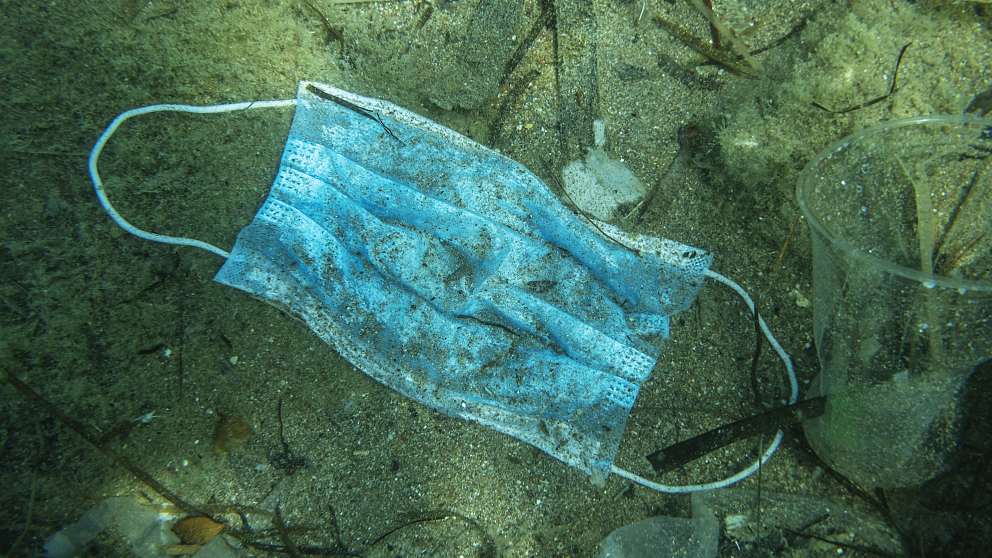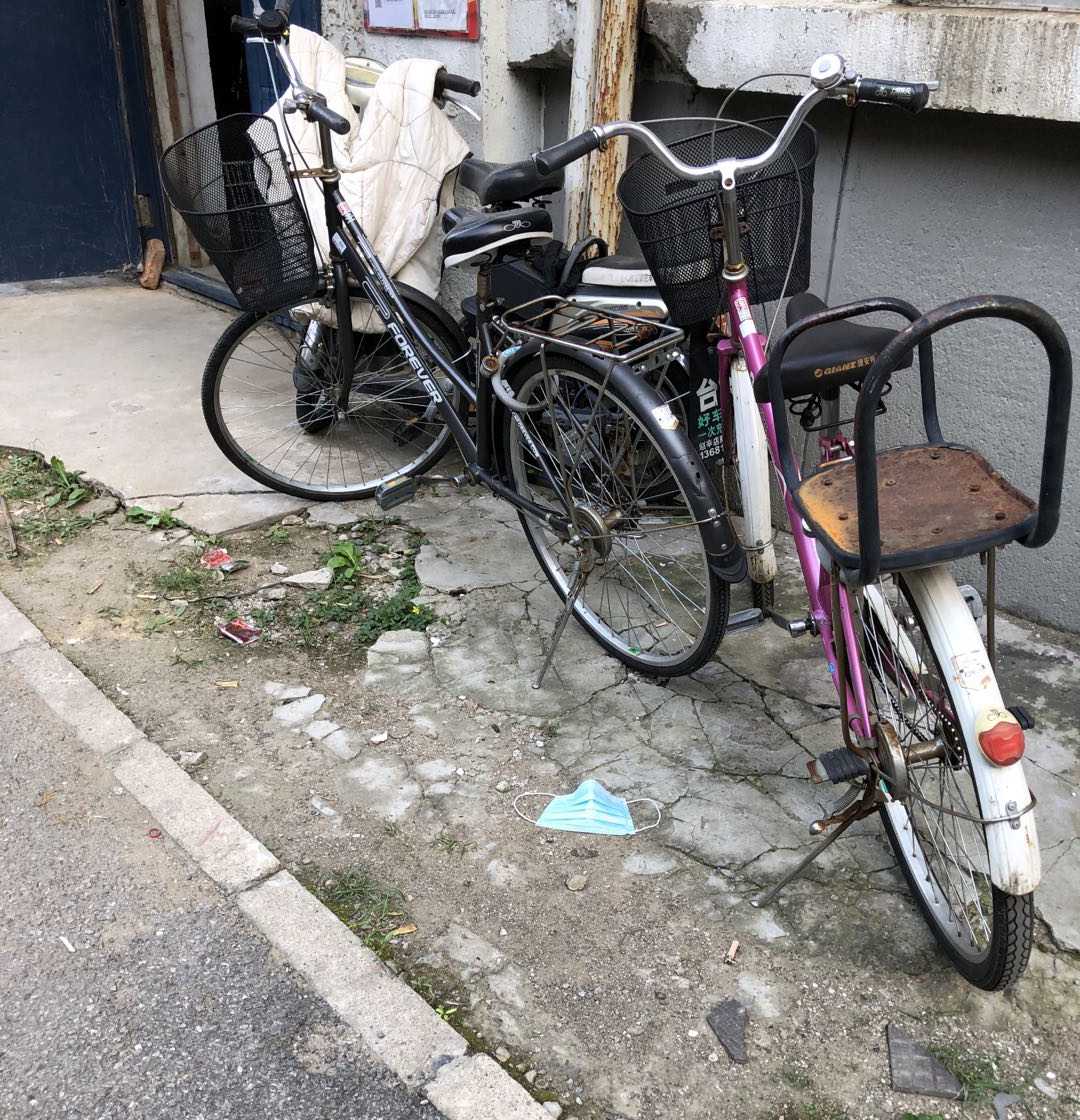
A mask is among and other garbage in the Adriatic Sea. /CFP
A mask is among and other garbage in the Adriatic Sea. /CFP
Cloth face masks, avoiding the virus while protecting the environment
The wearing of face masks, recommended by governments around the world to prevent the spread of COVID-19, is producing an unfortunate side effect in the form of a potential environmental hazard. In particular, disposable masks have been described as a "menace" because of the plastic they contain.
A report by the United Nations trade body UNCTAD estimates that global sales of disposable face masks this year will be worth 166 billion U.S. dollars, up from around 800 million dollars in 2019.
Being for single-use only, disposable face masks are convenient. However, because they are made from layers of plastic and since they are being used – and disposed of – in such large numbers, they are posing a growing threat to wildlife and habitats. A study by University College, London calculated that, in the UK alone, if every person wore one disposable mask a day for a year, it would create 66,000 tonnes of contaminated plastic waste.

A discarded face mask in a Beijing community. /CGTN
A discarded face mask in a Beijing community. /CGTN
Exacerbating the threat is the careless way people dispose of their single-use face masks. Light and small, they are now a common sight on the street, on the beach, and even in the sea.
Laurent Lombard, a diver and founder of the nonprofit Operation Mer Propre (Operation Clean Sea), told CNN that "soon there may be more masks than jellyfish" in the Mediterranean.
The danger posed by waste plastics to marine life is well documented. "Estimates suggest that more than 100,000 marine mammals and turtles and over a million seabirds are killed by marine plastic annually," Teale Phelps Bondaroff, director of Research at OceansAsia, told Energy Live News. "Marine plastic absorbs toxins, which results in it poisoning animals that accidentally ingest it."
He went on to explain the specific threat from face masks: "A mask that is ingested by a local turtle, pink dolphin or finless porpoise, for example, could easily become stuck in the digestive system of this animal, thereby killing it."
Humans are not immune. Even if a face mask is properly disposed of and professionally treated, it still contains plastic and that does not disappear immediately, "but rather slowly breaks down into micro-plastic, which enters food chains, with devastating effect," said Bondaroff.
An obvious solution – one that environmental campaigners are urging people to adopt – is to use face masks that are made from a material other than plastic. In places where the risk of infection is low, reusable cotton masks have become a popular choice. Washed and dried in the sun, a single mask may be used for several months.
Even if extra protection is required, for example by doctors and nurses, a cotton face mask may still be recommended, as long as it is formed of several layers of cotton. In an online article, staff at the Mayo Clinic, a U.S. nonprofit organization committed to clinical practice, education and research, had this advice:
"Cloth face coverings are most likely to reduce the spread of the COVID-19 virus when they are widely used by people in public settings. And countries that required face masks, testing, isolation and social distancing early in the pandemic have successfully slowed the spread of the virus."
Even so, just wearing a mask is not a 100 percent guarantee of safety. We still need to be mindful of the need also for physical and social distancing. Only these combined efforts will make it possible to reduce the transmission of respiratory droplets by infected individuals, and so protect others.